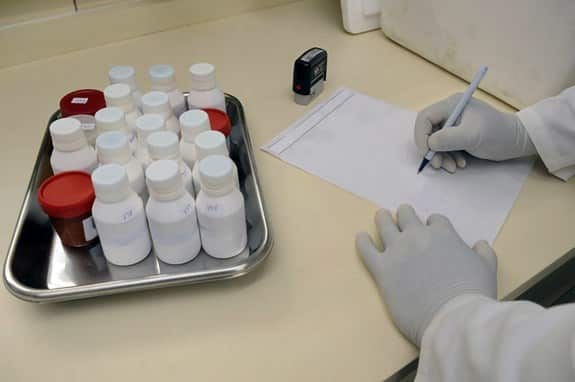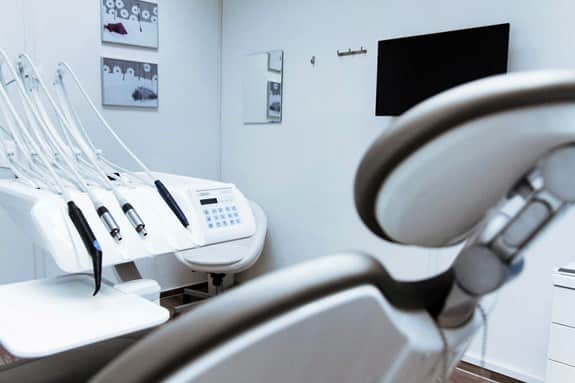Relatively Easy Jobs in the Medical Field
Many of us assume that starting a medical career takes years of schooling. A further assumption is that the careers that don't need a lot of training don't pay very well. Fortunately, neither of these statements are true. There are MANY easy medical careers to get into that have good salaries.
If you have a desire to work in the healthcare field, you're in luck. Some medical careers don't need a bachelor's degree. Others can take less than a year of schooling. The best part is that you'll still be able to work directly with patients or behind the scenes.
One of the primary reasons there are so many medical careers that are easy to get into is because there is a fast-growing need. The medical industry is still expanding at a rapid rate. This is due, in part, to an aging population and advancements in technology.
Many healthcare facilities are continually hiring for specific positions. The good news is that some of those positions don't take a lot of work, money, or training to get into. You have to know where to look and be prepared to think slightly outside the box.
How to Get into a Medical Career Easily
This guide features the easiest medical careers to enter. We based them on how long it takes to complete training and if you need to become certified.
Most of these careers are considered entry-level positions. That means they have room to grow! It's a great way to get into the healthcare industry without having to give up your time and resources. If you want to continue to advance your career, you can keep going to school while you're working. Or, you can gain experience on the job to get promoted.
Phlebotomy Technician
We'll kick off this list of great jobs with a career in phlebotomy. Phlebotomy is a rewarding career because you get to work directly with people on a daily basis. In fact, phlebotomists are often the first people a patient will see before checking in with a doctor, etc.
It's the job of a phlebotomist to draw blood from patients. They then label that blood in vials and transport it to a lab for testing. As far as medical careers go, this is one that shows no signs of slowing down any time soon.
It's still growing, and hospitals and facilities all across the country are looking for qualified phlebotomists. More illnesses and conditions than ever before can now be diagnosed with a blood sample. So, more phlebotomists are needed to take those samples.
Phlebotomy is considered an entry-level job. But, there are opportunities to move up. Some people start out as phlebotomists and work their way up to be nurses or even physicians. But, you can have a rewarding, full career by staying a phlebotomist.
It's easy to become a phlebotomist and start working with patients. Training takes less than a year in most cases. Not all states require certification. But, some do. Even if your state doesn't demand it, it's a good idea to become certified. Your state laws might eventually change. But, certification can also get you a better job, or even more money. Even certification won't add much time to your training program.

Phlebotomy training is also a little easier because it can be done in a variety of ways. Some people choose to go to a community college while others take specific training programs. Some people even do most of their training online. It's convenient, and because there is such a need, there are training programs all over to get involved with.
If you're not squeamish about blood and you like working with people, becoming a phlebotomist is a great way to get started in the medical field. On average, a phlebotomist makes nearly $32,000 each year. You may be able to start at a higher salary if you are certified.
Medical Transcriptionist
If you don't want to work with patients but still want to be involved in the medical field, you can look into medical transcription. This is an excellent job for people who can pay attention to detail and type quickly. It's the perfect position for those who excel in an office setting, or even someone who may want to work from home.
As a medical transcriptionist, you'll be responsible for listening to dictation. This usually comes from doctors or specialists, about a patient's file. You'll then take those dictated words and type them out. Transcriptionists work on different documents. This includes medical reports to correspondence. Again, many transcriptionists work in offices. But, technology has made it easier for this to become an at-home position.
To become a medical transcriptionist, you'll need to start out with either a high school diploma or GED. Then, you'll have to complete a medical transcriptionist training program. These can vary in length depending on the program you decide to take. Some training programs can take as little as six months. But, if you choose to sign up for a community college to get your certification, it can take up to two years.
Certification isn't necessary to be a transcriptionist. But, it is recommended and may land you a better job. If you do become certified, you'll need to re-take your certification exam every three years.
Though this is an easy job to get into, it's not a career that allows you to be 'lazy.' Transcriptionists must have the following characteristics:
- Organized
- Accurate
- Good listening skills
- Understanding of medical terminology
The average salary for a transcriptionist is almost $36,000 each year. Whether you work in a hospital or from home, that's an excellent salary for a minimal amount of training!
Physical Therapy Assistant
Between an active population and an aging one, more people are seeing physical therapists than ever before. Becoming a physical therapist can take years of intense training. But, as a physical therapy assistant, you only need an associate's degree. In most cases, that takes about two years.
Your training will involve a lot of hands-on work, so you'll be prepared for a lifelong career of helping people get back on their feet and restoring mobility. Most states need you to pass a licensing exam to become a PTA, but it doesn't add to the time it takes to receive training.
As a physical therapy assistant, you'll work directly under the supervision of a physical therapist. It will be your responsibility to help patients recover from accidents or illnesses that have left parts of their body immobile. They also help patients manage the pain associated with such things.
While this particular career may take a bit longer than some others on this list, it's worth it. There is over a 40% job growth rate through 2024. Because of that, it will be reasonably easy to find a job once you do complete your training. That extra bit of schooling also comes with a lucrative salary. PTAs make an average of about $55,000 each year.
Nursing Assistant
As you might expect, a nursing assistant works directly with a registered nurse. They are responsible for everything from general patient care to measuring vital signs. Though you may not have as many responsibilities as a nurse, you'll still work with a variety of patients every day. Plus, the education and training needed are much less.

As a nursing assistant, you only need to have a high school diploma or GED. Then, you'll need to complete a certified nursing assistant training program. These can take anywhere from about 4-12 weeks. During that time, you'll work in both a classroom and clinical setting.
Many people become a nursing assistant as a stepping stone to becoming an RA. Because it takes so little time to train, you can become an assistant and continue your education to become a registered nurse later on. The salary for a nursing assistant averages at about $26,500 each year. If you choose to continue your education and become an RA, that jumps to about $68.500 a year.
Medical Secretary
If you prefer an office setting and like staying organized, you might be a great medical secretary. When you hear the term 'secretary,' you might think your duties won't amount to much. But, medical secretaries have many different responsibilities.
Some of these include:
- Scheduling appointments
- Managing physician schedules
- Managing medical charts
- Working as a line of communication between patients and doctors
You can either become a medical secretary by earning an associate's degree or taking a specific training program. The training courses are faster than taking college classes. Not only will you be using technology on a daily basis, but you'll be an essential part of the healthcare industry. It's essential for medical secretaries to know medical terminology and billing and coding.
Many times, medical secretaries are the first point of contact for patients. This is especially true in smaller clinics or private practices. So, if you like working with people and enjoy secretarial duties, this could be the perfect medical career for you. On average, a medical secretary makes almost $34,000 each year.
Radiology Technician
Radiology technicians are also often called x-ray techs. They work with x-ray machines and directly with patients. They use these machines to scan bones, tissues, organs, etc. This helps a physician to determine what might be wrong with a patient if they're feeling pain or have a specific condition.
Radiology technicians work directly with patients on a daily basis. But, they don't diagnose the x-rays, they only take them. It's crucial for an x-ray tech to be able to make a patient feel calm and comfortable. They should also be able to pay considerable attention to detail when using the machinery.
Even though it's a vital job, it doesn't take a lot of schooling to become a radiology technician. You can either earn an associate's degree in radiology or take an accredited certificate program. These programs run anywhere from 6-12 months. During that time, you'll experience both classroom and clinical training.
One important thing to keep in mind as an x-ray tech is that more schooling may be involved throughout your career. Medical advancements are being made continuously. Because of this, the technology used for x-ray machines will continue to change and get better. While you can end up using that to your advantage, you need to make sure you always know how to work the machines correctly.
X-ray techs can make anywhere from $45,000-$60,000 each year. It depends on the hospital you work for, as well as your certification.
Home Health Aide
Not all medical careers have to involve a busy hospital or even a clinic or private practice. Home health aides work directly with patients inside their home. As a result, the job is taken at a slower, calmer pace than someone who works in a hospital. Home health aides typically assist elderly patients. But, they can also work with disabled people or those who need help performing their daily activities.
Common things that can be done by a home health aide include household tasks like laundry and preparing meals. They can also educate their patients about nutrition and self-care. If you like the idea of working more directly with patients, this is a great opportunity. Most home health aides only work with one, or a few patients at a time. This allows you to give each person the care and attention they need. It's a great way to develop relationships with your patients and make an impact.
There are some certifications you can take to become a home health aide. But, many organizations will hire you with just a high school diploma or GED. It helps to have some experience in caregiving or skills that will make you more appealing to a home healthcare organization. No prior medical knowledge is needed.
On average, a home health aide makes about $22,000 per year. It may not be as much as some of the other jobs on this list. But, it's also much less stressful than many other medical jobs. And, aside from working under the umbrella of an organization, you're your own boss.

Occupational Therapist Aide
An occupational therapy aide is slightly different than a physical therapy aide. OTAs work under occupational therapists. They help patients to overcome physical, mental, or emotional ailments that make it difficult for them to get through their days.
Occupational therapist aides also work to assist the OT. They schedule appointments, deal with insurance and order supplies. Anything the OT might need their aide should be able to do. It's a great balance between working with patients every day and working in an office setting.
Some occupational therapists work in hospitals or clinics, but many own private practices. If you work in a private office, you can expect the job to be less stressful than in a busy hospital.
An occupational therapist aide needs a high school diploma. They typically receive on-the-job training. To become an official 'assistant,' an associate's degree is required. The amount of training you have will be reflected in the responsibilities you have on the job. An aide makes, on average, about $28,000 per year.
Pharmacy Technician
Not all healthcare jobs take place in a hospital, clinic, or physician's office. A perfect example of this is a pharmacy technician. They work under pharmacists. They complete different daily tasks under supervision. This includes everything from helping to fill prescriptions to taking answers about prescriptions in person and over the phone. They can also work with insurance companies and accept payments from patients.
Most states need pharmacy technicians to complete a certification program. Thankfully, these programs usually take less than a year to complete.
You can become a pharmacy technician if you want to be a pharmacist eventually. It's a great way to springboard your career. But, many people find contentment in just being a technician throughout their whole career. It gives you the opportunity to help people each day by giving them the medications they need.
On average, a pharmacy technician makes about $30,000 each year.
Medical Coder
Medical billing and coding is one of the most critical jobs in the healthcare industry. Just because you don't work with patients doesn't mean you won't be making a significant impact. Medical coders take notes and diagnoses from physicians and assign everything a code. These codes are then used by insurance companies to determine what costs will be covered.
It's up to a medical coder to learn a particular 'language.' They have to know what each code means and how it can be applied to the notes put on a chart by a physician. It's essential that they are accurate, so the job needs someone that is organized and can pay considerable attention to detail. The codes are also always changing. So, it may take some continued education or updating to adapt to these changes.
Getting into medical coding itself is relatively straightforward. Certification isn't required by everyone, though most employers prefer it. You'll have a better chance of getting a job if you do get certification, which only takes about nine months. Plus, getting certified likely means you'll make more money! The average salary for a medical coder is almost $36,000 per year.

Dental Assistant
If you're looking for something a bit different but still within the medical field, you might consider a career as a dental assistant. Dental assistants do a variety of tasks. They do everything from developing x-rays to helping dentists with different procedures. They also prepare rooms and sterilize instruments. Some assistants even work in lab settings, doing things like preparing crowns or molds.
Dental assistants are different from hygienists. They don't clean the teeth or do patient exams. They are there to provide support for the dentist and fulfill duties as needed. The downside to this difference is that assistants make less money than hygienists. But, the training to become a dental assistant is much less, too.
Dental assistants do need some post-secondary training. This usually comes in the form of either a certificate program or a degree. Depending on which path you choose to take, training can take anywhere from nine months to two years.
If you want to become a dental assistant to get your foot in the door of a higher dentistry job, it's a great opportunity. You can continue your training to become a hygienist or even a dentist without having to compromise on your job.
Even without countless years of schooling, the average salary for a dental assistant is nearly $36,000 each year. If you enjoy working with people and have an interest in oral health, it's a great entry job in the dental industry.
Is the Healthcare Industry Hard to Get Into?
As you can see, many different medical careers don't take a lot of time or training to get into. There are too many misconceptions that a job in medicine takes years of schooling. Of course, some do. But that shouldn't hinder your decision about getting into medicine. If you want to help people and make a difference, there are a lot of jobs that are in high demand for you!
If you've considered a career in medicine but haven't been sure what's available to you, we hope this article has been helpful. You can use the careers here to launch a lucrative career in medicine and continue your training. Or, you can choose to stick with one of these jobs forever. Either way, you'll be impacting people's lives on a daily basis. The jobs listed here are as crucial as physicians, surgeons, etc. Without them, the medical field wouldn't be able to function so smoothly.
Source: https://www.phlebotomyexaminer.com/easiest-medical-careers/
0 Response to "Relatively Easy Jobs in the Medical Field"
Post a Comment